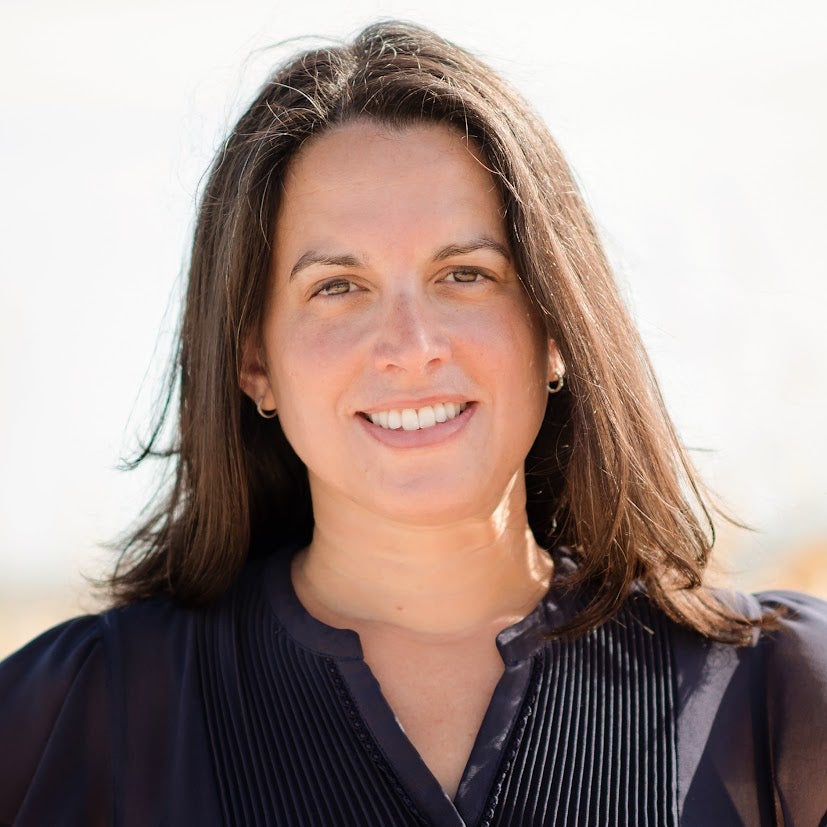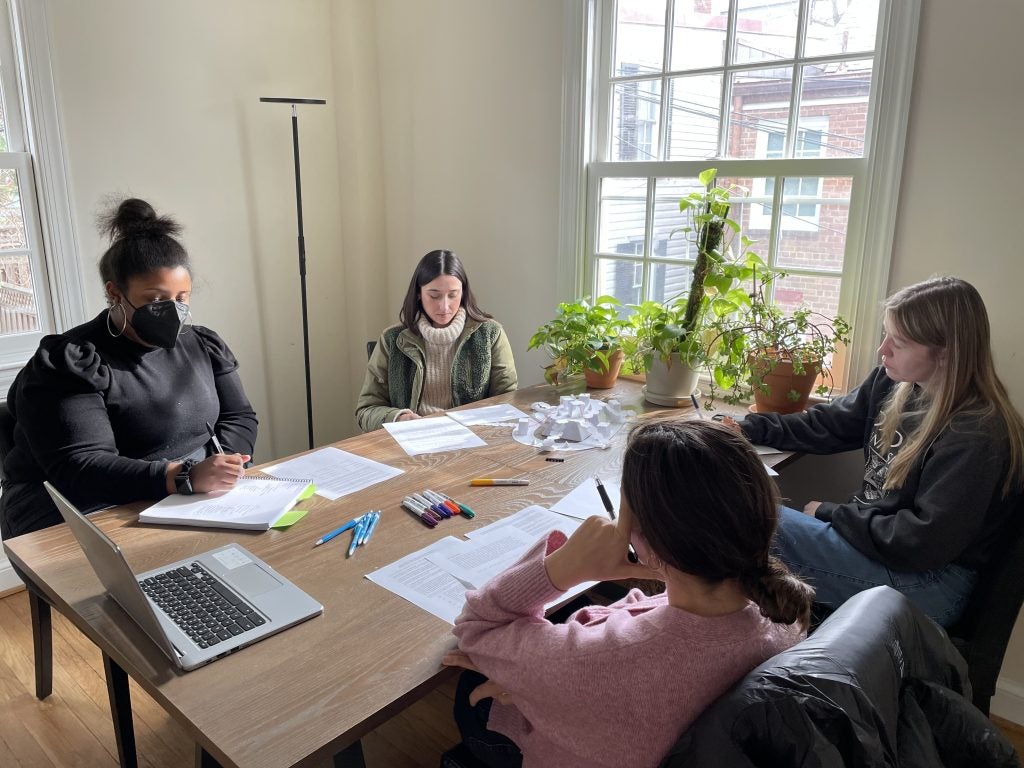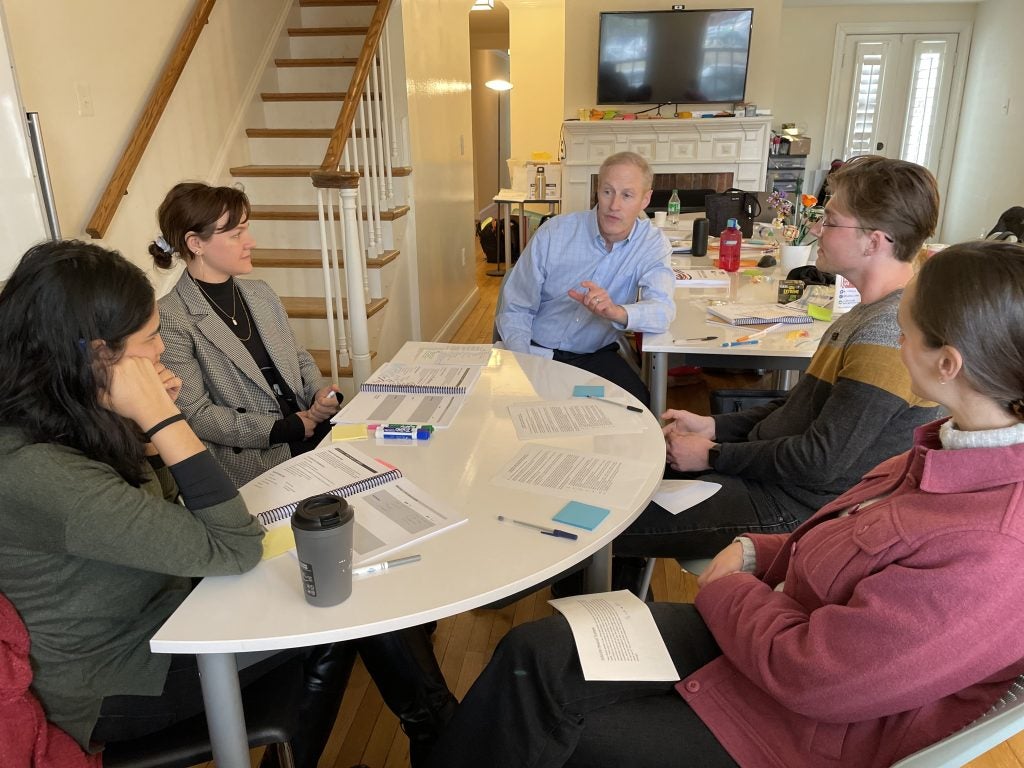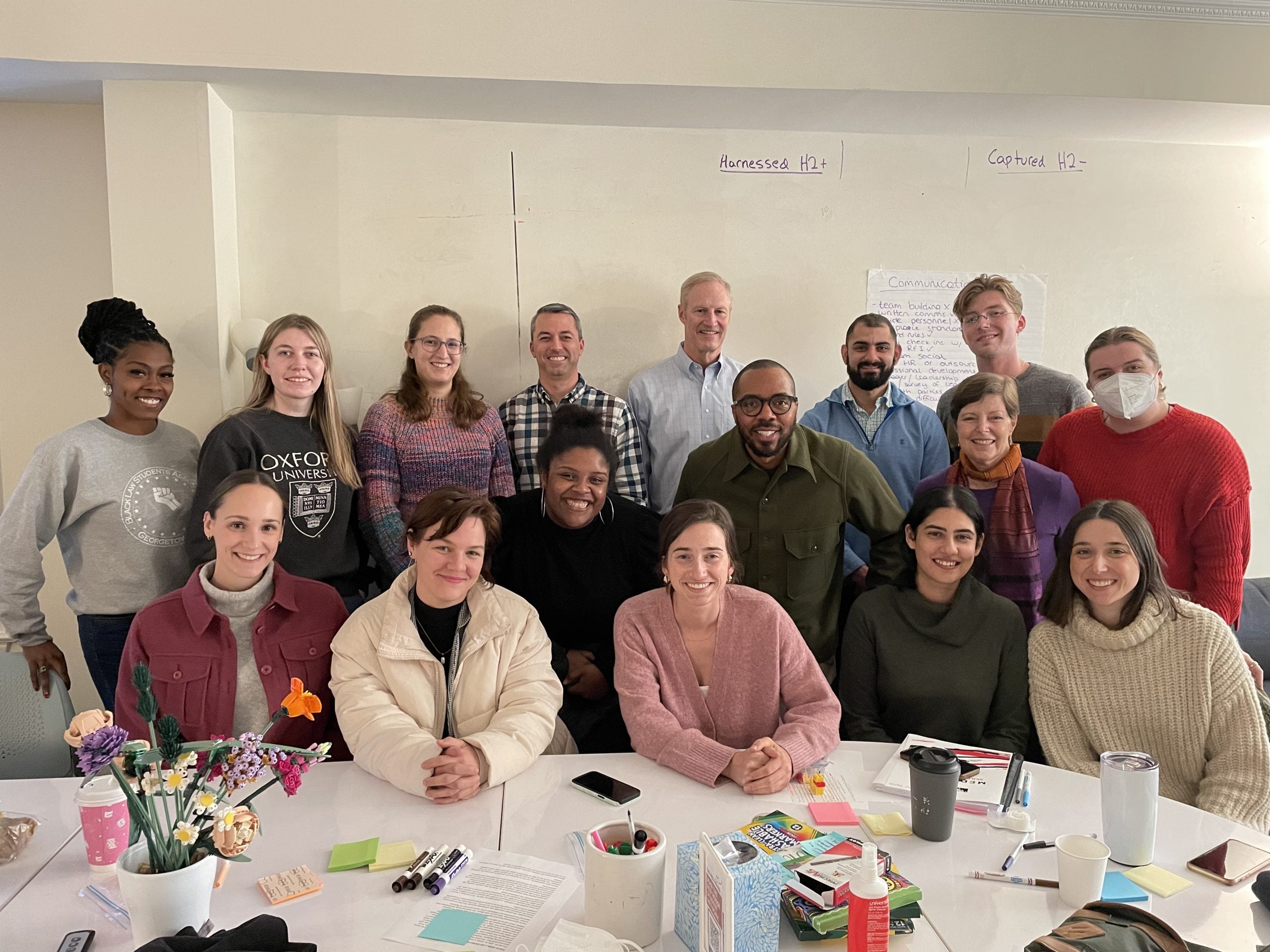Transforming conflict into mutual understanding
Georgetown graduate students became certified mediators through mentorship and experiential learning in the Conflict Transformation Lab’s innovative, interactive course.
Rachel Milner Gillers aims to help students learn how to transform conflict into mutual understanding — a key skill in academic, personal and professional life. As the director of Georgetown’s Conflict Transformation Lab (CTL) and associate professor of the practice at the McCourt School, she leads Mediation Skills and Processes , a three-credit course through which Georgetown graduate students become certified mediators in the Virginia court system. Milner Gillers cites empathy as the trait most needed for the work.

“For those at the table, there’s a break- down of the relationship, a breakdown of communication, a lack of trust, pain, loss of sleep and frustration of various sorts,” said Milner Gillers. “Having somebody around to remind us of the ways in which we might have shared goals or ways in which we can empathize with one another is key.”
With 20 years of professional experience as a mediator, Milner Gillers, who teaches negotiation and conflict resolution at the McCourt School, said everyone can learn something in the course — no matter their degree track or professional path.
“Whether it’s a parent observing their kids fighting or someone trying to resolve an is- sue with a work colleague, having a neutral party helps shake us out of our tendency to stay in our own corner,” she said.
The mediation program along with CTL’s skill-building clinics, grew from a simple question Milner Gillers heard early in her career. “A couple of students approached me and asked if there was a way to learn the content that I was teaching in my full-blown negotiation course as a co-curricular experience,” she said.

Participating graduate students in the Mediation Skills and Processes course represent a variety of schools and programs. Six students in the spring 2023 cohort were affiliated with McCourt, including the School’s Director of Communications Mariel Jackson . Kevyanna Rawls (MPP’24), a McCourt Ambassador and first-generation student, scheduled a meeting to speak with Milner Gillers after hearing her describe an intriguing idea in class: how mediation is an important part of policy.
“Thinking of mediation and policy as an opportunity to engage critical voices by having Black and brown communities at the same table as key decision-makers, such as legislators and big corporations, was empowering,” said Rawls.
The program offers students the op- portunity to gain practical mediation experience through mentorship and interactive learning in the classroom, a motivating factor for Remington Barnes (MPM’23). The active-duty Air Force officer initially thought the program would give him a new set of tools to handle interpersonal and organizational conflict.

“I was interested in learning new ways to look at conflict as an opportunity to generate win-win scenarios instead of as a zero-sum game,” said Barnes.
He now plans to apply his newfound mediation skills at the Pentagon, helping him engage with teammates.
“It was great to work with professional mediator mentors during the program and to learn from their years of experience,” Barnes said. “It was also good to see how different mediator mentors approach different situations. There is room for interpretation as you help facilitate two parties to reach an agreement where maybe they didn’t see any way forward when they came to mediation.”
By the end of the program, participants such as Barnes and Rawls become trained mediators and are eligible to become certified mediators in the Virginia court system. Students work on a variety of cases including landlord/tenant, contract, debt, business-to-business and neighborhood disputes from Small Claims, Landlord-Tenant or General District courts.
The pivotal work of the program is sustained through generous funding from the Baker Trust for Transformative Learning.
